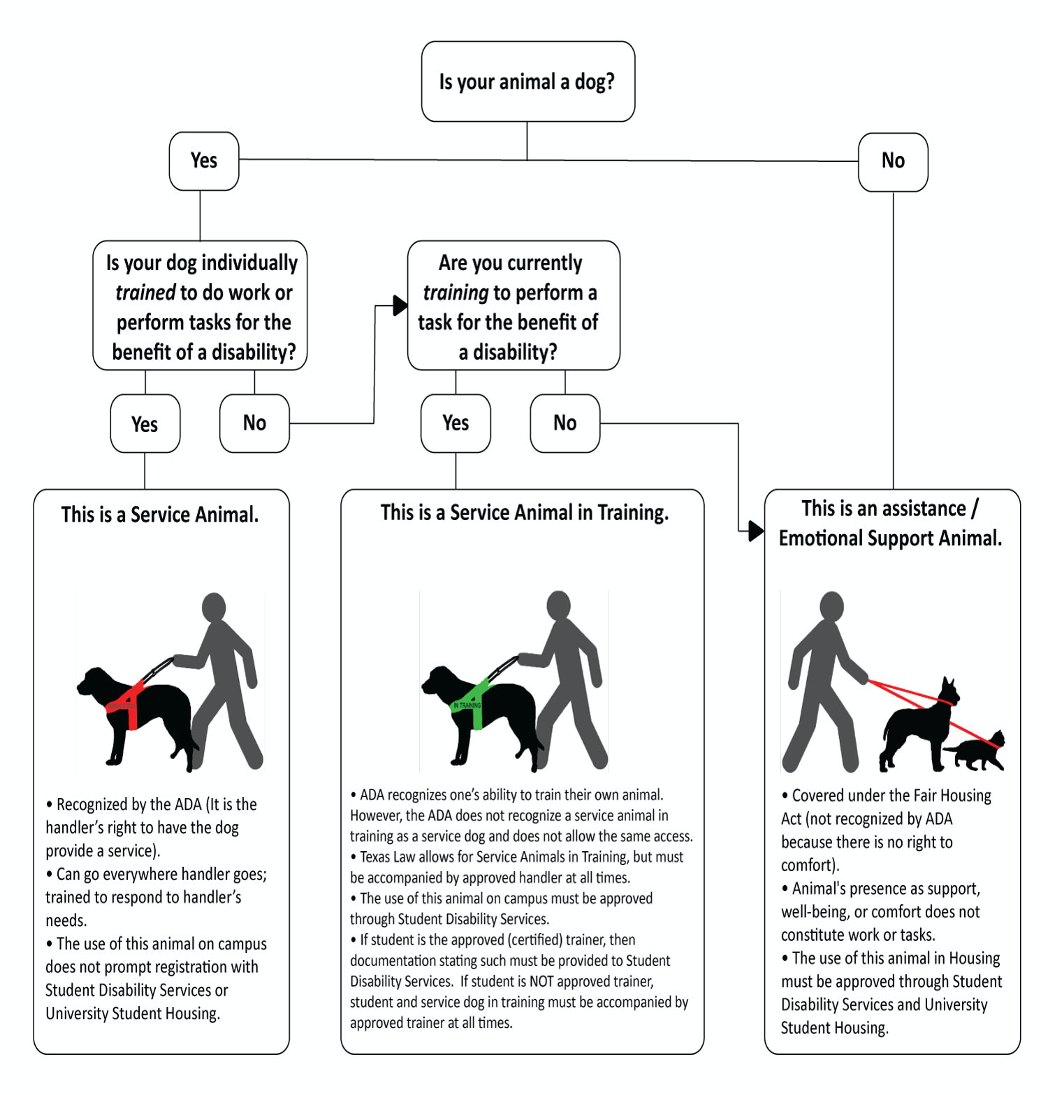Service Animals
A Service Animal is defined under the Americans with Disabilities Act (ADA) as a dog that is individually trained to do work or perform tasks for the benefit of an individual with a disability, including physical, sensory, psychiatric, intellectual, or other psychological disabilities. Service animals are allowed in a public place due to the owner’s need for the animal at all times. Although, there may be exceptions due to putting an animal in harm’s way or other circumstances that would not be deemed reasonable/appropriate for either the handler/anima.
Examples of such work or tasks include but are not limited to:
- Alerting an individual of a seizure/change in blood sugar
- Alerting people who are deaf to the presence of possible danger
- Calming a person with Post Traumatic Stress Disorder during an anxiety attack
- Guiding an individual who is blind or has a vision impairment with navigation
- Helping an individual retrieve a needed item
- Pulling a wheelchair
- Reminding a person with a psychological disorder to take prescribed medications
- Performing other duties regarding necessary daily living activities
Under ADA, colleges and universities are required to allow individuals with disabilities to bring their service animals in all areas of the facility that are open to the general public or attending students.
Handler's Responsibilities
A service animal must be under the control of its handler at all times. The Americans with Disabilities Act (ADA) requires the animal to be leashed, tethered or harnessed unless the individual’s disability prevents the use of these devices or the use of these devices interferes with the service animal’s ability to perform safe or effective work/task(s). In this case, the individual must maintain control of the animal through voice, signal, or other effective measures.
The handler is responsible for the overall supervision and care of the animal:
- Feeding
- Grooming
- Veterinary Care
The handler is responsible for the control of the animal at all times. Examples of disruptive behavior by the animal might include but are not limited to:
- Uncontrollable barking
- Approaching or jumping on people
- Trying to get away from the handler
If the service animal is out of control or disruptive, staff may request that the animal be removed from the premises.
Animal Classification Guide
Service Dogs
A dog → individually trained to do work or perform tasks for the benefit of a disability → is a service animal.
- Recognized by the ADA (it is the handler’s right to have the dog provide a service).
- Can go everywhere the handler goes; trained to respond to handler’s needs.
- The use of this animal on campus does not prompt registration with the Office of Student Accessibility.
Services Dogs in Training
A dog → you are training to perform a task for the benefit of a disability → dog must be accompanied by an approved trainer at all times → this is a service animal in training.
- ADA recognizes one’s ability to train their own animal. However, ADA does not recognize a service animal in training as a service dog and does not allow the same access.
- Texas Law allows for Service Animals in Training, but must be accompanied by approved handler at all times.
- The use of this animal on campus must be approved by the University Director of the Office of Student Accessibility. If the student is NOT an approved trainer, the student and service dog in training must be accompanied by an approved trainer at all times.

